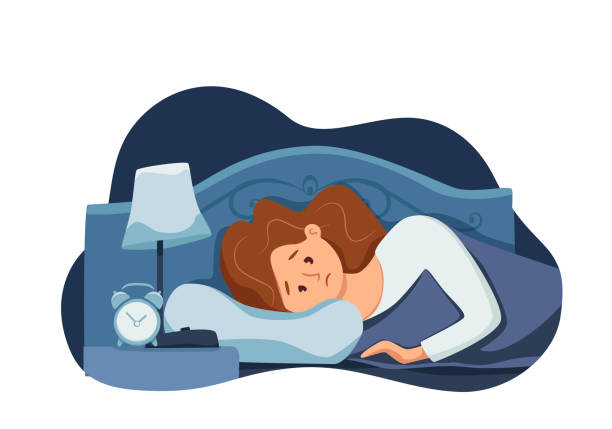Uncategorized
Sleep Timetable for Best Sleeping Hours (Part 2)
As the sun sets, the brain receives a signal to go into sleep mode.
From our last article, bedtime can be scheduled from one’s sleep needs, daily activities, and, significantly timed by the biological clock. The biological clock is the timer for the natural rhythm that follows a 24-hour cycle and involves changes in our body’s chemical or functions. The clock is largely controlled by light and dark, and drives the awake-sleep cycle that corresponds with the day-night cycle. The light or dark sends signals to special brain cells for sleep or awake mode.

As the sun goes down, the darkness signals to the brain for sleep mode. Melatonin (a brain chemical) is secreted as it happens during fatigue. This chemical triggers the in-built brain switch to shut down alertness signals causing one to feel tired and sleep. So, we are advised that responding and sleeping according to this natural rhythm of the biological clock guarantees us quality sleep.
As explained in our previous article, we are wired to sleep at night and when we are fatigued, go to bed early and wake up early morning, matching our sleep pattern with that of the sun. Have you tried sleeping once the night falls? Please share your experiences with us!
It has been observed further that there is a time lag between the onset of darkness and the secretion of melatonin. The melatonin secretion rises some hours into the night and gets suppressed some hours in the dawn before the full daylight. To ensure responding and sleeping according to the natural rhythm of the biological clock, one should accommodate this time lag in choosing the sleep bedtime thereby going to bed while it is dark.

We can further suggest bedtime considering the individual’s sleep needs. The sleep needs vary, noticeably with age. According to National Sleep Foundation, preschool children, 3 – 5 years need 10 – 13 hours of sleep, school-age children need 9 – 11 hours, teenagers need 8 – 10 hours, and adults need 7 – 9 hours. These sleep durations are best to be extracted from the night-time.
To set a target bedtime, decide when one intends to wake up depending on one’s daily activities. Then count backwards the number of hours of sleep the person needs.
For instance, if the desired wake-up time is between 7:00 and 8:00 a.m.:
- Preschool children who need 10 – 13 hours of sleep may be put to bed between 8:00 and 9:00 p.m.
If the school or work schedule requires one to be up between 5:00 and 7:00 a.m., these are the suggested bedtimes:
- School-age children who need 9 – 11 hours of sleep should go to bed between 8:00 and 9:00 p.m.
- Teenagers who need 8 – 10 hours of sleep should go to bed between 9:00 and 10:00 p.m.
- Adults should go to sleep between 10:00 and 11:00 p.m. for 7 – 9 hours of sleep.
The UK Biobank Researchers studied 88,000 adults and determined that 10 p.m. is an ideal sleeping time for adults. This accommodates the natural rhythm time lag and agrees with the suggested bedtime according to an individual’s sleep needs and daily activity.
Still, this type of sleep schedule may not work for everyone. Sometimes it is impossible to follow the natural rhythm as one’s lifestyle may clash with the internal clock – causing the sleep schedule to fall off track and the body’s clock misaligned. All hope is not lost. What is needed is a consistent bedtime schedule. This happens by consistently going to bed and waking up at the same time. This allows the body and brain adapt to the personal rhythm and ensures that one gets enough sleep and that it’s good quality sleep.
This consistency in time is an element of good sleep practices that ensure the brain’s good health. Others include:
- Consistently drink water at least 4.5L – 5.0L over the day, with urine turning colourless.
- Regularly eat just enough quantity of balanced diet two or three times daily.
- Regularly do SAFE exercises like fast walking, swimming, push-up sets, etc. – 30mins daily or at least five times a week.
- Avoiding smoking, excess alcohol and stimulants like caffeine.
- Keeping stresses in check with avoidance of avoidable stressors
Bear in mind that where, when, and how you sleep has an impact on your physical and mental health as well as your ability to live a healthy life. We all need quality sleep to be set for more productivity in our endeavours.

Are you currently facing any sleeping difficulty?
Are you looking for the best way to maintain quality sleep for generally wellbeing and healthy living?
A certified specialist is best fit to offer relevant advice for maintenance of quality sleep
Do you want to contact the Orthopaedic Sleep Consultant, Dr Charles Uzodimma, kindly send your request to sleepinfo@vitafoam.com.ng
Vitafoam is passionate about quality sleep, healthy living and general wellbeing of Nigerians. We are proudly Nigerian and constantly supports Nigerians with consistent quality products for comfort and wellbeing.
